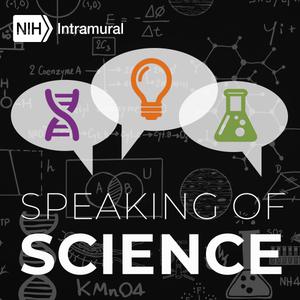
Speaking of Science
The Intramural Research Program of the National Institutes of Health (NIH)
Meet NIH Intramural researchers working to change lives by advancing all aspects of biomedical science.
- 23 minutes 40 secondsDefying Dengue
This year has seen a record number of dengue cases all over the world. It might not be a fluke, as climate change expands the areas where the mosquito that transmits the tropical disease can thrive. New measures for treatment and protection are necessary, but there’s something peculiar about the way dengue infects the body that has stumped scientists for decades. That is, until now. Dr. Leah Katzelnick, Dr. Camila Odio and Dr. Stephen Whitehead from the National Institute of Allergy and Infectious Diseases (NIAID) are digging into dengue and coming up with ways to defy it.
23 September 2024, 4:51 am - 32 minutes 51 secondsDevon Valera and Dr. Jacqueline Vo — Dismantling the Myth of Asian American, Native Hawaiian, and Other Pacific Islander Populations as a Monolith
Historical failings, like the Chinese Exclusion Act of 1882 that restricted immigration from China for 61 years, have cast a shadow of prejudice and discrimination over Asian American, Native Hawaiian, and Pacific Islander (AANHPI) populations. Its effects continue to loom heavy, often reducing these groups to a single racial-ethnic category and masking major differences that exist between them, even when it comes to their health. In this episode, Devon Valera, from the Office of NIH History, breaks down how history has shaped AANHPI experiences and perceptions, and Dr. Jacqueline Vo from the National Cancer Institute (NCI), explains why science is now calling to dismantle the myth that these populations are a monolithic group.
28 May 2024, 5:51 am - 28 minutes 58 secondsDr. Michael Ombrello — The Rare Case of Beverly Gage
Beverly Gage came to the NIH with a condition that had never been observed before. A mysterious genetic mutation that caused her chronic joint pain and inflammation led her to Dr. Michael Ombrello, an expert in rare inflammatory diseases at the National Institute of Arthritis and Musculoskeletal and Skin Diseases (NIAMS). Where their paths cross shows us the current challenges of diagnosing, treating, and living with a disorder that is new to science.
1 April 2024, 2:41 am - 25 minutes 9 secondsDr. Sadhana Jackson — Breaking Through the Blood-Brain Barrier
The blood-brain barrier keeps bad actors like toxins, viruses, and bacteria from entering the brain. But in the case of brain cancer when the danger is already inside, the blood-brain barrier can work against a person’s health by shutting out the medications meant to eliminate the threat. Dr. Sadhana Jackson from the National Institute of Neurological Disorders and Stroke (NINDS) works to figure out ways to selectively get cancer treatments through the blood-brain barrier to treat patients with certain types of brain tumors known as gliomas.
Learn more about Dr. Jackson work at https://irp.nih.gov/pi/sadhana-jackson.
18 January 2024, 4:16 pm - 29 minutes 28 secondsDr. Meredith Shiels — Health in Numbers
Epidemiologists are the watchful guardians of public health. They collect and analyze data to track the status quo. When there are deviations, they crunch the numbers to understand who is getting sick, where, how, and why. Dr. Meredith Shiels is an epidemiologist and senior investigator at the National Cancer Institute (NCI) studying cancer mortality rates to discern what populations might be at higher risk, figure out ways to mitigate those risks, and evaluate whether those measures are working.
Learn more about Dr. Shiels’s research at https://irp.nih.gov/pi/meredith-shiels.
26 October 2023, 4:40 am - 32 minutes 16 secondsDr. Veronica Alvarez and Dr. Bruno Averbeck — On the Pulse of Compulsive Behaviors
Despite negative consequences and the desire to stop, millions of people with compulsive behaviors can’t break the self-destructive cycles that disrupt their daily lives. Dr. Veronica Alvarez and Dr. Bruno Averbeck from the National Institute of Mental Health run the Center on Compulsive Behaviors (CCB) which brings together NIH scientists to understand what drives these repetitive and often detrimental behaviors. The CCB strives to decipher the neural circuitry that leads to compulsive behaviors in hopes of improving treatments and designing new interventions.
Learn more about the CCB at https://research.ninds.nih.gov/researchers/center-compulsive-behaviors-ccb.
6 June 2023, 2:02 pm - 23 minutes 45 secondsDr. John Hanover — The Bittersweet Study of Glycobiology
Sugars, also referred to as carbohydrates, aren’t just substances we add to make coffee taste less bitter or food sweeter; they are an entire class of molecules necessary for life. The study of these carbohydrates is called glycobiology. Dr. John Hanover is a glycobiologist and the chief of the laboratory of cell and molecular biology at the National Institute of Diabetes and Digestive and Kidney Diseases (NIDDK). His work is advancing scientists’ understanding of the sugar structures responsible for rare diseases and genetic transgenerational inheritance.
28 February 2023, 6:10 am - 30 minutesDr. Sharon Milgram — Making the Most of the Trainee Experience
None of the groundbreaking research taking place in the IRP would be possible with the hard work and dedication of trainees. While they work to support the NIH’s mission to turn discovery into health, the Office of Intramural Training and Education (OITE) works to supports trainees in their professional pursuits. Dr. Sharon Milgram is the director of OITE and a strong proponent that good training begets good science. In this episode, she talks about the many ways OITE supports students and fellows so that they can achieve their best work and make the most of their experience in the IRP.
12 December 2022, 2:20 am - 28 minutes 19 secondsDr. Steve Holland — Sussing Out Susceptibility to Sickness
For Dr. Steve Holland, the mystery of why some people are more prone to disease is as much a curiosity as it is a calling. Dr. Holland is the scientific director and chief of the immunopathogenesis section at the National Institute of Allergy and Infectious Diseases (NIAID) where he searches for signs to explain differences in susceptibility to certain infections. In this episode, he discusses how the immune system can thwart its own defenses by producing antibodies that block the chemical signals it needs to put up a fight.
18 October 2022, 4:49 am - 20 minutes 2 secondsDr. Hari Shroff — The Science and Play of Super Resolution Imaging
NASA recently unveiled the first images taken by the James Webb Telescope. But the distant cosmos aren't the only ones coming into focus. While astronomers point their instruments up to peer into the stars, microscopists like Dr. Hari Shroff are focusing their gaze down to capture life on Earth. As chief of the Section on High Resolution Optical Imaging at the National Institute of Biomedical Imaging and Bioengineering (NIBIB), Dr. Shroff engineers new microscopes to render the invisibly small in new and improved resolution.
25 July 2022, 2:32 am - 18 minutes 42 secondsDr. Joyce Chung — Gathering Helping Hands to Grasp Mental Health
Finding treatments for mental health conditions doesn't just deal with people who live with them. Healthy volunteers play a critical part in the science of understanding our brains and behavior. But what qualifies as "healthy" can vary across labs and skew how scientists interpret study results. Dr. Joyce Chung, the Deputy Clinical Director at the National Institute of Mental Health (NIMH), is changing that. She is creating a pool of vetted volunteers to bolster the integrity, efficiency, and safety of mental health research.
3 May 2022, 5:40 am - More Episodes? Get the App
Your feedback is valuable to us. Should you encounter any bugs, glitches, lack of functionality or other problems, please email us on [email protected] or join Moon.FM Telegram Group where you can talk directly to the dev team who are happy to answer any queries.
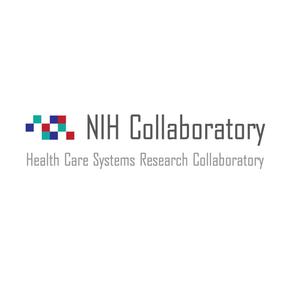 NIH Collaboratory
NIH Collaboratory
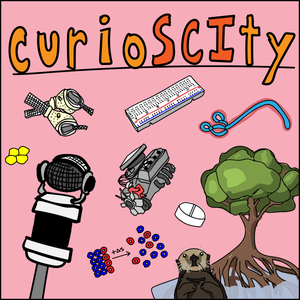 Curioscity
Curioscity
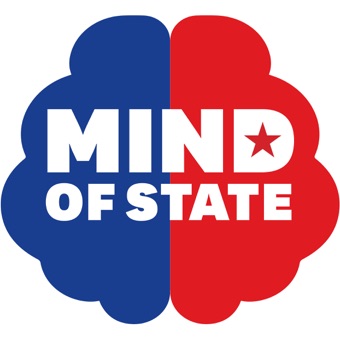 Mind of State
Mind of State
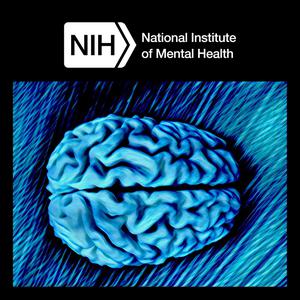 Brain Experts Podcast
Brain Experts Podcast
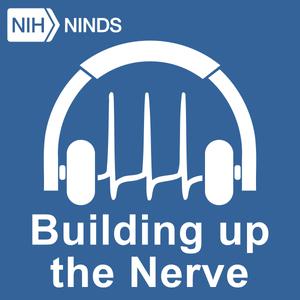 NINDS's Building Up the Nerve
NINDS's Building Up the Nerve
 All About Grants at NIH
All About Grants at NIH